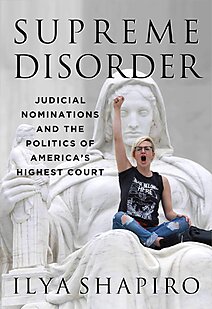The brutal confirmation battles we saw over Justices Neil Gorsuch and Brett Kavanaugh are symptoms of a larger problem with our third branch of government—one that began long before Merrick Garland, Clarence Thomas, or even Robert Bork: the Court’s own self-corruption, facilitating the expansion of federal authority and thereby aggregating more power to themselves. In Supreme Disorder: Judicial Nominations and the Politics of America’s Highest Court, Ilya Shapiro takes readers inside the unknown history of fiercely partisan judicial nominations and explores reforms that could return the Supreme Court to its proper constitutional role. Still, arguing about the confirmation process misses the heart of the matter: that we now have divergent interpretative theories mapping onto partisan preferences when the parties are more ideologically sorted than any time since the Civil War. So, of course, judicial appointments are going to be fraught—and will be as long as the Supreme Court decides so many major political issues. Only when the Court rebalances our constitutional order, curbs administrative overreach, and returns power to states and localities will the bitter war over the judiciary subside. Please join us for a discussion of these and other issues as judicial nominations emerge as a key part of the 2020 election campaign.

